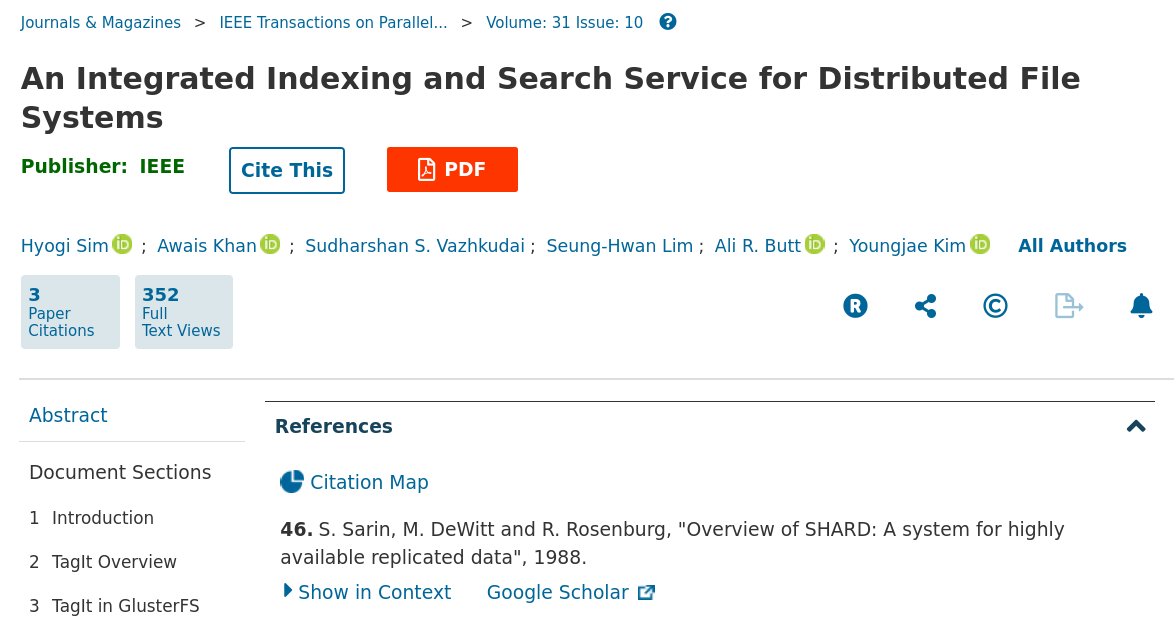
Welcome to acronym city! I recently published my Master's Dissertation. I say "published" - I just shoved it up on a website. But real academic publications should have a DOI - it's an identifier which is supposed to make it easier for people to find and cite paper. You know how books have a unique ISBN? It's like that. I couldn't find a way to publish this via my university, which was a little …
Continue reading →

There's a new pre-print paper called Pinpointing the problem: Providing page numbers for citations as a crucial part of open science by Leon Y. Xiao and Nick Ballou. It's a short, easily understandable paper, and well worth a read. I think I disagree with nearly all of its conclusions! The main point, I agree with. Citing a whole paper is a lossy process. Saying "Smith, J (1963) Practical Time…
Continue reading →

About a million years ago, I was discussing the FOAF (Friend of a Friend) ontology with its early proponents. It allowed you to define a machine-readable semantic relationship like "Alice is married to Bill" and "Bill is Carol's child" and "Carol works for David". That sort of thing. At the time, all the FOAF relationships were defined in terms of positive sentiment. There wasn't (and still…
Continue reading →

I am a vain man. For a few years, I've been tracking academic papers which cite my blog posts. Recently, someone let me know that they'd found one of GitHub repos in a paper they'd read. It hadn't even occurred to me to search for those! So, shove your GitHub URl into Google Scholar - https://scholar.google.com/scholar?q=github.com/edent - and you'll see if any repos have made it into…
Continue reading →

The web service TurnItIn is a "plagiarism detector". Lots of universities use it to assess whether their students are copy-n-pasting content which they haven't written. I'm not a big fan of it. First, I'll explain how to opt-out your websites. Then I'll explain why I don't like the service. Block Their Robot TurnItIn scans the web and records everything on your website. It then uses that to…
Continue reading →

One thing I'm finding extremely frustrating in academia is the number of people citing papers which don't seem to actually exist. As part of a data analytics class, I'm learning about "database sharding". That is, the process of splitting data between multiple machines. But where does the term come from? Wikipedia - the source of all truth - says: In a database context, most recognize the…
Continue reading →

Welcome to Yak Shaving School! As part of my MSc I'm reading a book about Data Analytics. So I've been chasing down quotes to find their origin. One paper had this popular quote in it (emphasis added): As with many rapidly emerging concepts, Big Data has been variously defined and operationalized, ranging from trite proclamations that Big Data consists of data-sets too large to fit in an…
Continue reading →

I don't understand the world of academic publishing. Incredibly niche books, some barely longer than a novella, are sold for ridiculously high prices. Or, worse than that, they're not sold at all. Let me explain. A friend of mine recommended an obscure book, published a couple of years ago. The blurb made it look right up my alley, so I tried to buy it. I only read eBooks, but I couldn't find…
Continue reading →







